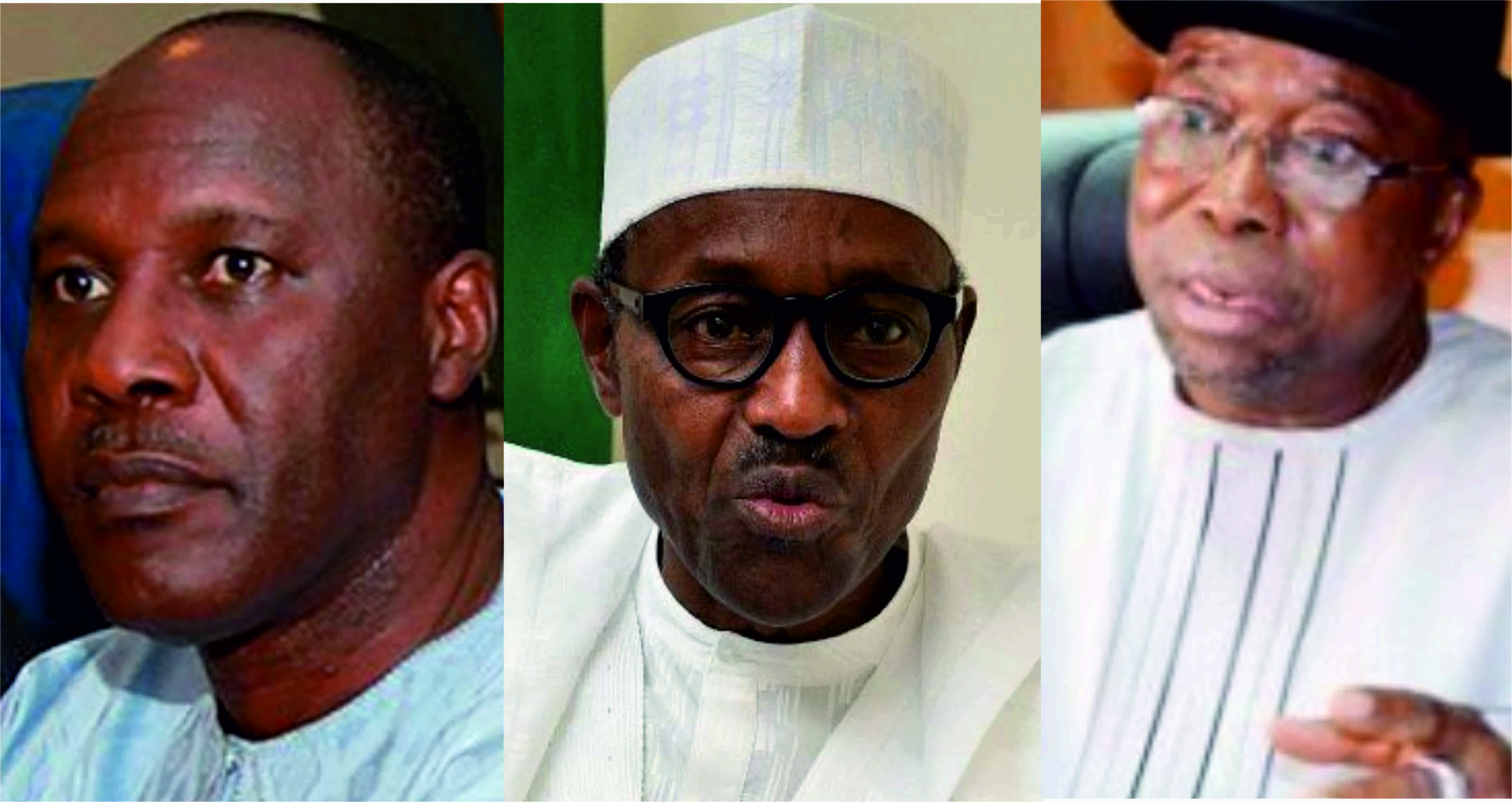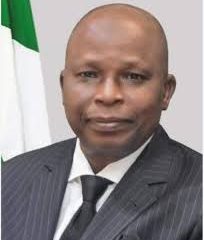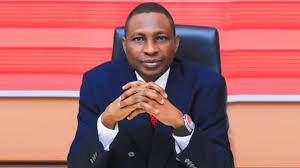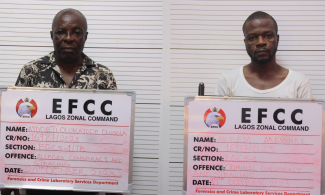News
Niger Delta Ministry N700bn audit: Buhari may shield Orubebe, Oru, others
Published
8 years agoon
By
Olu Emmanuel
By DICKSON OMONODE
AS revelations of shady deals in the Ministry of Niger Delta Affairs during the last administration seep to the fore, the ministry’s ex-officials implicated in the audit report might have no cause for worry after plundering over N700 billion in six years.
Although the 12-man audit panel recommended individuals involved in dubious deals be punished, Minister Usani Uguru Usani has hinted that the report was not meant for ass-kicking or a witch-hunt.
“It’s to ensure transparency, accountability and to see that the various projects of the Ministry serve the purposes for which they were put in place, for the benefits of the Niger Delta people,” Usani said while receiving the audit report last week.
Usani might have taken the easy way, which is the only one out. Considering the present volatility of the region, analysts believe any attempt to shakedown the officials, especially, ex-ministers Godsday Orubebe and Stephen Oru, may stoke the ember of violence the federal government and south-south elders are trying to douse,
A lot of peace moves have been going among the elders, the Movement for the Emancipation of Niger Delta, the Niger Delta Avengers, and other militant groups in the area.
ALSO SEE: No going back on solution to Niger Delta crisis – Presidency
Part of the grouse of the militants is the APC government plan to investigate former Niger Delta politicians, including ex-President Goodluck Jonathan and his oil minister Diezani Allison-Madueke and others.
Where reports and recommendations matter, Orubebe and Oru would be called to question, especially over the East-West Road, housing projects, vocational training, coastal area development, rehabilitation of oil-impacted areas, among the 390 abandoned projectsout of 427.
Although the ICPC picked up Yusuff Agabi, the ministry’s former finance director, and four others last September–they were accused of embezzling N715 million and $100, 000their arraignment pales out compared to the cesspool of corruption unearthed in the ministry.
“The way billions of naira are mentioned in construction projects value in the Ministry of Niger Delta Affairs has become so banal that very soon, it is believed, they are likely to escalate to trillions of naira, even though the values do not appear realistic,” said the audit committee.
According to Petroleum Minister Ibe Kachikwu, the federal government and oil firms have spent about $40 billion has been spent on the Niger Delta in the last 10 years.
“As I go to the creeks, I see no infrastructure that justifies the result of the massive investments,” said the minister while addressing traditional leaders from the region who came to visit him in Abuja on Friday.
The failed investments, however, have their effects. Series of World Bank’s reports and findings over the years have established that the Niger Delta remains poorso poor the GNP per capita is below the national average of US$280 in Nigeria.
In terms of living condition, people in the region, according to development experts, are among the poorest in Nigeria. About 70 percent of the inhabitants still live in rural areas with no electricity, potable water, good housing and roads.
The Human Capacity Development Index across the nine south-south is low, too, especially in education. While seventy 76 percent of Nigerian children attend primary schools, the level in some parts of the Niger Delta has dropped, according to reports.
While all this infrastructure and development programmes were captured in the ministry’s capital budgets over the last six year it was created, nothing much has been achieved. Mere 12 percent of the projects has been completed while 18 percent stalled. Seventy percent is uncompleted. The contractors got their payouts, though.
ALSO SEE: Presidency in dilemma over Niger Delta Avengers
Canalisation got N6.1; electrification, N2.4 billion; road construction, N631.8 billion and land reclamation/shoreline protection, N14.4 billion. The housing contracts got a budget of N7.3billion, while conservation and development of coastal eco-system got N217.4 million, Water schemes, N2.24 billion and rehabilitation and remediation of oil-impacted sites, N1.31 billion. Human capacity development programmes like construction of skill acquisition centres got N30.7 billion. On training, about N15 billion was budgeted.
In all N423.2 billion was paid out, leaving a balance of N320 billion. That is about 60 percent of the total payments, though 40 percent of the contracts kicked off within the six years.
“And about 80 percent of the projects are ongoing, abandoned after payments, total abdication or refusal to deliver as in the case of Youth Capacity Building Programmes,” the committee report said, with a tone disappointment.
Kachikwu, however, calls for sober reflections. “What this means is that the Niger Delta must begin to do soul-searching by asking themselves where the monies went.”
He believes there’s no point agitating like the militants are destroying oil assets to spite the government when so much money committed to developing the oil-producing region has gone down the drain, and nobody is accountable.
“So I see that those who pay the biggest price for militancy is the Niger Delta itself. The person who pays the biggest price for pollution is the Niger Delta itself. The person who pays the biggest price for security imperative and lack of security is the Niger Delta itself.”
But in spite of all this fund misappropriation, lack of transparency in the Niger Delta Affairs ministry, and even the effect on the Niger Delta people, nobody will be punished, according to the Usani.
However, letting go of another clear case of corruption in an interventionist ministry like this will mean a lot to the critics of President Muhammadu Buhari’s administration and its boast of zero tolerance for corruption.
You may like


Minister of Justice cautions against obstruction of EFCC’s operations


EFCC arrests internet fraudster in Port Harcourt


EFCC clarifies investigation of Humanitarian Affairs Ministry, recovery of N32.7bn, $445,000


How Court turned down Bobrisky’s plea for mercy
EFCC interrogates 14 suspected oil thieves in Rivers


EFCC arraigns 2 in Lagos on allegation of N2.7bn money laundering
Trending

 Football2 days ago
Football2 days agoGuardiola advised to take further action against De Bruyne and Haaland after both players ‘abandoned’ crucial game

 Business1 week ago
Business1 week agoDollar crashes further against Naira at parallel market

 Business1 week ago
Business1 week agoRecapitalisation: Zenith Bank to raise funds in international capital market

 Education1 week ago
Education1 week agoArmy reveals date for COAS 2024 first quarter conference

 Crime1 week ago
Crime1 week agoFleeing driver injures two on Lagos-Badagry expressway

 Covid-191 week ago
Covid-191 week agoBritish legislator demands Bill Gates, other ‘COVID Cabal’ faces death penalty

 Latest6 days ago
Latest6 days agoIsrael pounds Hezbollah with airstrikes after Iran attack

 Business1 week ago
Business1 week agoZenith Bank surpasses N2trn earnings milestone

